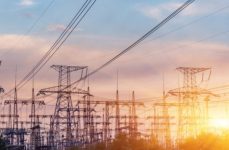Published on the 25/02/2025 | Written by Heather Wright

Everything, everywhere, all at once…
Australia’s top spy boss has warned that rapid advances in technology, particularly AI, are accelerating dangerous trends, as he warned in a ‘frank, uncomfortable assessment’ that national security threats are set to escalate.
Mike Burgess, director-general of the Australian Security Intelligence Organisation, described the latest threat assessment – the sixth so far – as his most ‘significant, serious and sober’ one to date.
“AI will enable disinformation and deep fakes that can promote false narratives, undermine factual information and erode trust.”
Burgess, who says Australia has ‘entered a period of strategic surprise and security fragility’ warned that AI will intensity espionage and foreign interference, while also noting that Australia’s critical infrastructures are being ‘routinely’ mapped by other countries.
Three of the ASIO’s key concerns – espionage, foreign interference and politically-motivated violence – are currently ‘flashing red’ with espionage and foreign interference already at ‘extreme levels’ and expected to intensify further.
The rapid advances in technology are accelerating ‘almost all’ the trends Burgess discussed, with espionage and foreign interference enabled by those advances, particularly AI and deeper online pools of personal data vulnerable to collection, exploitation and analysis by foreign intelligence services, he says.
“Artificial intelligence will enable disinformation and deep fakes that can promote false narratives, undermine factual information and erode trust in institutions,” he added.
He told intelligence, security and military chiefs and other stakeholders, that information about Australia’s military capabilities was in hot demand, with defence personnel being targeted in person and online – including some who were recently given gifts containing concealed surveillance devices.
Cyber sabotage will pose an increasing threat and presents a more acute concern for Australia than physical sabotage.
“Cyber units from at least one nation state routinely try to explore and exploit Australia’s critical infrastructure networks, almost certainly mapping systems so they can lay down malware or maintain access in the future,” he says.
One unit was recently discovered targeting critical US networks, including Australian nodes.
He noted that the motivations for destroying or disrupting critical infrastructure were varied, including impeding decision-making, sowing social discord and damaging war-fighting capabilities.
In the wide ranging assessment, Burgess called out Russia’s war in Ukraine, Middle East conflict, the pandemic and its lockdowns as contributors to the changing threat landscape. He noted ‘more aggressive and reckless Russian intelligence apparatus’ targeting Ukraine supporters, including Australia, and accelerated spikes of grievance, conspiracy and anti-authority beliefs as a result of Covid lockdowns.
“The grievance narratives, conspiracies and online echo chambers that proved so potent during Covid have festered and evolved into a diverse threat environment susceptible to sudden shifts in response to events,” he said on the topic of politically motivated violence..
It’s not the first time Burgess has issued dire warnings about technology’s role in radicalisation.
Last year at a social media conference, he dubbed the internet ‘the world’s most potent incubator of extremism’, and said social media was ‘both a goldmine and a cesspit’, creating communities, but also dividing them.
His latest threat assessment also included mention of the impact of the hyper-connectedness of the world in allowing political tensions or conflicts overseas to resonate quickly in Australia, spread by social media and online echo chambers and inflamed by mis- or disinformation.
The upcoming federal election was also in the spotlight, with Burgess noting the ASIO will be watching closely.
“I am acutely aware that this year’s federal election will be held in a security environment characterised by eroded trust in institutions, mis- and dis-information, incidents of politically motivated violence and attempts at foreign interference.
Ensuring our elections remain free, fair and peaceful is business as usual for ASIO.”
Specialist teams and operations have been established to work with the Electoral Commission and other partners ‘to protect the integrity of the poll’.
“We will be watching. If a foreign regime tries to meddle in the election by pressuring diaspora groups, directing foreign language newspapers, spreading disinformation on social media or using any of the other tactics sometimes seen overseas, we will know. And we will act.”



























